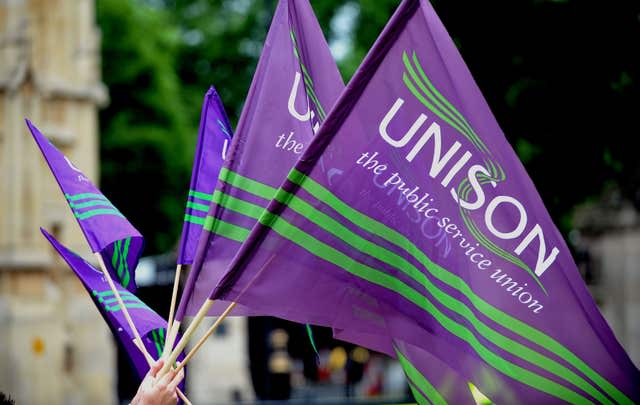Council and school support staff begin voting on strike action over pay
More than a third of a million council and school support staff across England and Wales will start voting on Tuesday on whether to strike over pay.
Unison said an offer of a flat rate £1,925 was “nowhere near” enough to meet rising prices during the cost-of-living crisis.
The union, which had called for an increase of 2% above inflation, said that since 2010, the value of local government pay has fallen by 25%.
The six-week ballot, which closes in early July, includes refuse collectors, social workers, teaching assistants, librarians and others, working at 4,000 different employers.
A separate ballot for Northern Ireland will open in August.
Unison general secretary Christina McAnea said: “Too often council and school support staff are taken for granted. Without them, the services on which whole communities rely won’t exist.
“With cuts to local government and education budgets, employees are having to do more with far less. That puts huge pressure on an already-stretched workforce struggling to keep afloat as costs continue to soar.

“Staff are leaving their jobs because pay is falling ever further behind, and neighbourhoods will suffer.
“Bins won’t be collected, schools won’t have sufficient staff and vulnerable people will be deprived of vital support.
“These workers are truly dedicated but they’ve had enough. Going on strike is a huge step that isn’t taken lightly but many feel they have to make a stand.
“Employers can do far better, but ministers also need to step up to make sure local government is given the funding it needs, so staff get a decent wage and services are protected.”

 Yahoo Finance
Yahoo Finance 